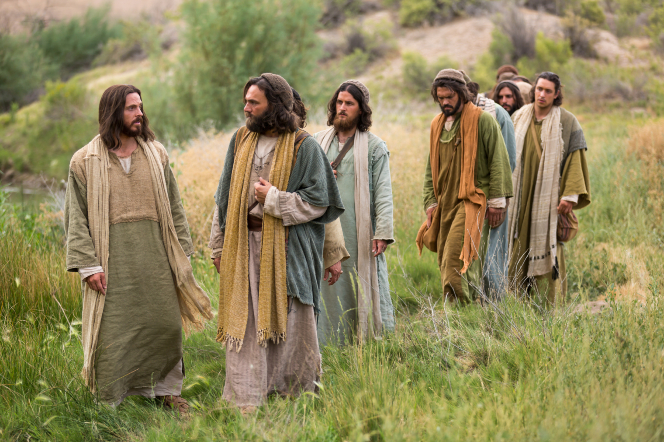The Need for Reformation
The need for reforming the church never goes away, and the problem is always the same: the church becomes like the world in its thinking and its practices.
This lame aping of the world becomes more problematic the further our western culture drifts away from its Christian moorings. The need for reformation becomes more urgent as time passes.
And one of the ways the church needs to reform its ways is in its vision of discipleship.
 |
| Jesus spent long hours with the Twelve |
The task of the church is to "make disciples of all nations" (Matthew 28). It is not to fill the heads of converts with dry academic doctrine, but to turn them, by the grace of God, into fully signed up followers of Jesus Christ - in character and life.
If we were to ask any one of the 11 disciples what Jesus meant when he said "make disciples of all nations", they would have said "do for the world, what I have just done for you."
Here are some of the characteristics of New Testament discipleship:
(1) Lots and lots of time. Jesus did not ask the Twelve to show up for a talk twice a week, but spent many, many long hours with his disciples. There is probably a certain number of hours per week, below which no real effective discipleship will ever take place. I don't know what that number is, but it is more than two.
(2) Spend organic time with. Jesus did not merely spend "classroom" time with his disciples, he did "life" with them. They were with him in all sorts of circumstances, not merely in teaching settings.
(3) Formal and informal teaching. Jesus sometimes had a set "body" of teaching he had to deliver, (for example, the sermon on the mount), at other times he responded to something around him or something going on in the lives of his disciples. If the disciples were proud or prayerless or faithless he would address that issue there and then: informal teaching burns into the mind and heart.
(4) Constant counter-teaching. Jesus is always teaching against the background of the false teachers of his day. In other words, his teaching had a very large corrective element in it. "You have heard it said.... but I say.." Jesus was the first and greatest reformer.
There are many pressures against this kind of true discipleship taking place today. The powerful current of traditional meet-twice-a-week religion is one. The love of pleasure is another - because the demands of this kind of discipleship on our time will mean many personal and family sacrifices will have to be made. The desire for large numbers which often makes the one-to-twelve discipleship process much less likely to happen is a third.
In the end it is only the power of God's Spirit that can make true disciples, but followers of Christ are called to be co-workers in this great task.







